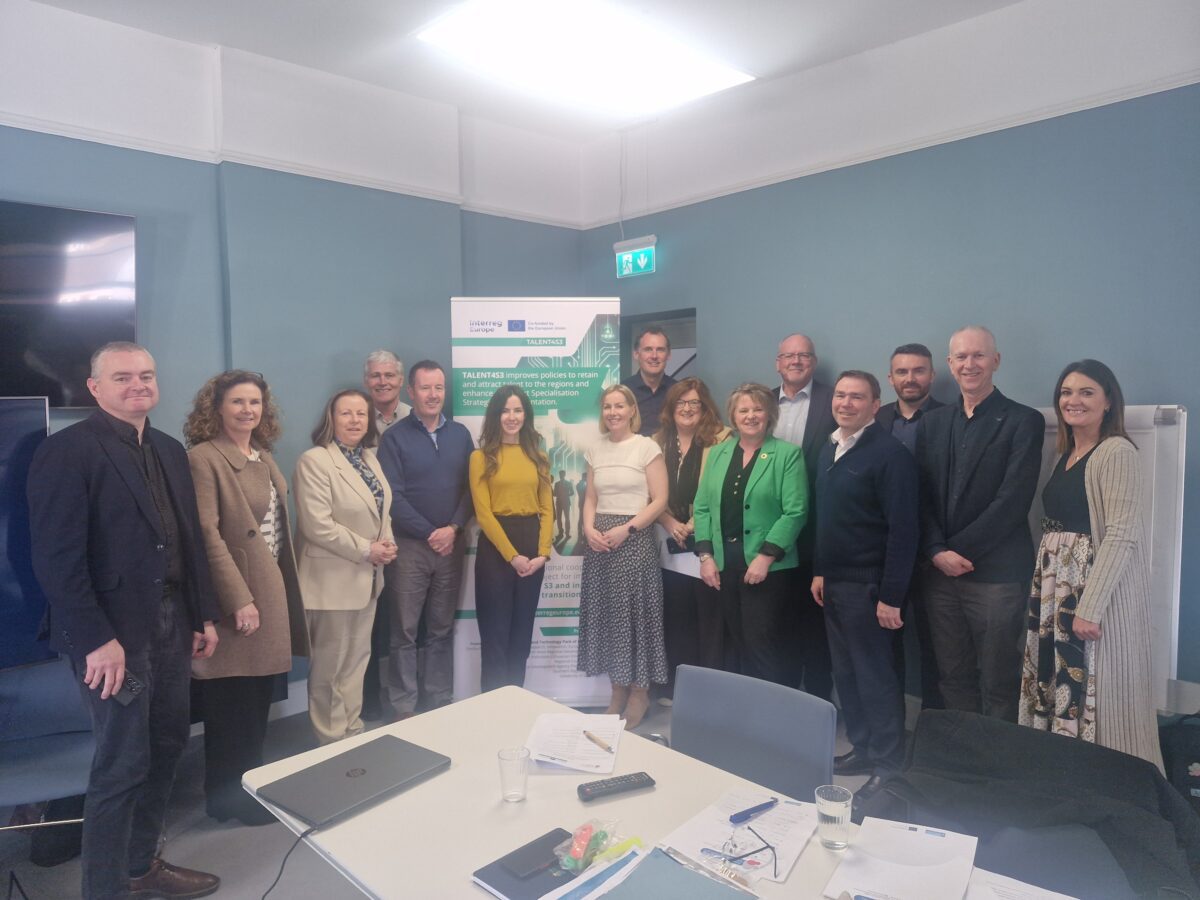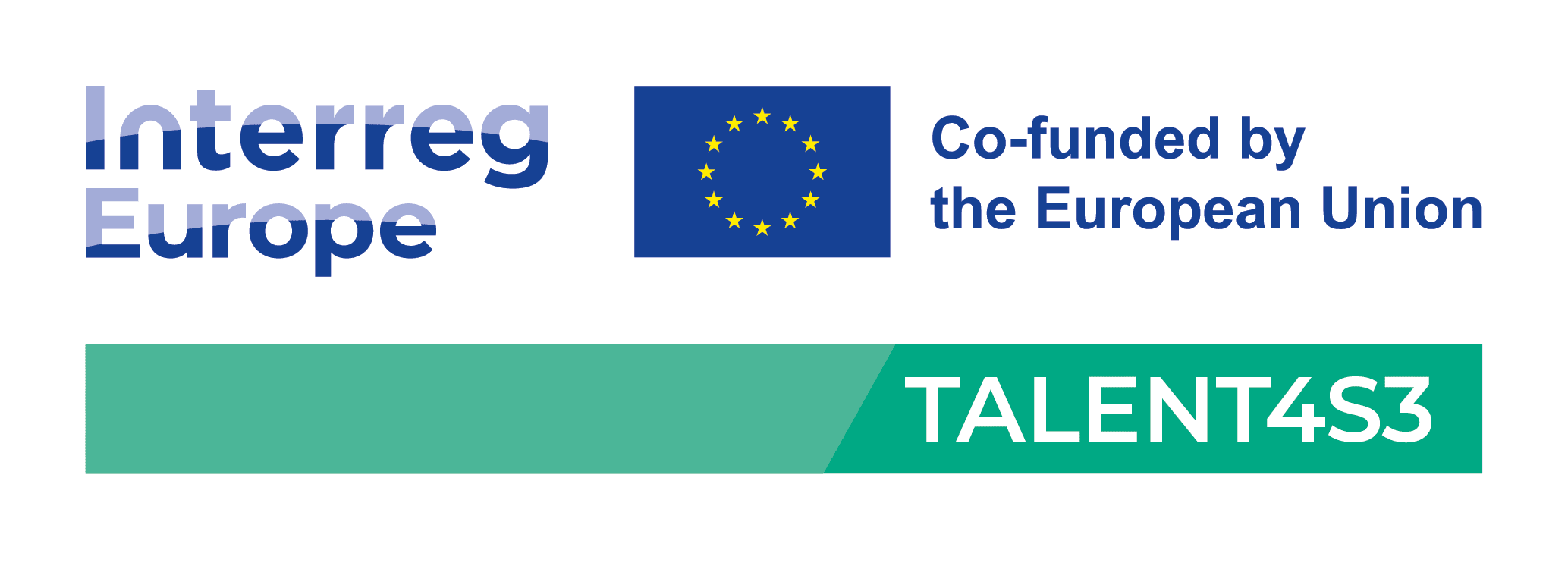On 12 March 2025, the Southern Regional Assembly (SRA) convened its second regional stakeholder meeting for the TALENT4S3 project at Nano Nagle Place in Cork City. Bringing together 19 representatives from local government, higher and further education, regional enterprise and skills forums, and the private sector, the hybrid event was a vibrant forum for sharing insights and exploring strategies to address talent shortages and support regional economic development.
As part of the EU-funded TALENT4S3 initiative, the meeting focused on aligning regional talent development with Smart Specialisation Strategies (S3), which aim to foster innovation and economic resilience by building on a region’s strengths and potential. The agenda featured expert presentations on labour market trends, regional innovation ecosystems, and lifelong learning, with contributions from the ManpowerGroup, Munster Technological University (MTU), the Ludgate Hub, and others.
Rhiannon Carey Bates from the SRA provided updates on interregional activities and the State-of-the-Art report, while other speakers highlighted best practices in industry-academic collaboration and skills forecasting. A presentation by ManpowerGroup underscored the pressing need to address skills shortages, with 83% of Irish employers reporting difficulties in recruitment—an all-time high.
The meeting was followed by a survey circulated to stakeholder, where they were asked to consider three core themes: enhancing industry-education collaboration, addressing talent shortages and engaging the Irish diaspora, and harnessing opportunities presented by an ageing population. Attendees proposed practical steps such as expanding apprenticeship models, increasing support for remote and hybrid working, and developing a centralised digital platform to connect diaspora talent with regional opportunities. Stakeholders stressed the importance of aligning educational offerings with regional S3 priorities, particularly in sectors such as digital technology, health innovation, and the creative industries.
Practical proposals included expanding work-based learning opportunities, developing a “Skills Observatory” to provide real-time labour market intelligence, and establishing a regional diaspora engagement strategy. The meeting reaffirmed the Southern Region’s commitment to building a future-ready workforce by embedding talent development at the heart of its Smart Specialisation Strategy. The outcomes will inform the next phase of regional action planning and foster continued collaboration across education, enterprise, and innovation stakeholders.


